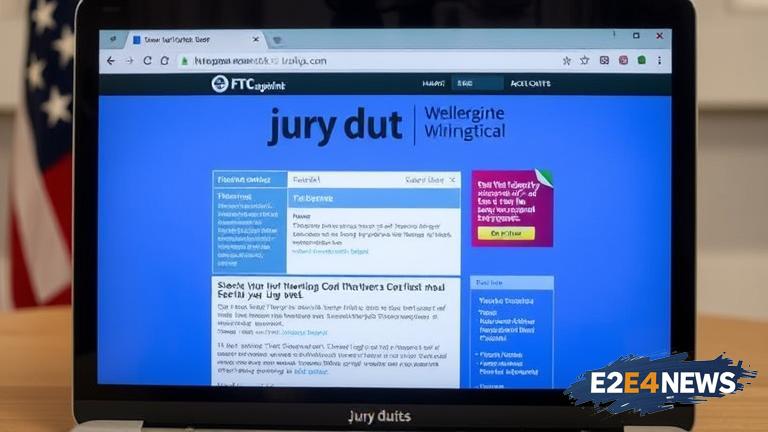The FTC has reported a surge in complaints regarding a new type of jury duty scam, where scammers create fake websites that appear to be affiliated with local courts or law enforcement agencies. These websites are designed to look legitimate, complete with official-sounding names and logos, but are actually phishing sites aimed at stealing sensitive information from unsuspecting victims. The scammers behind these fake websites claim that the victim has missed jury duty and must pay a fine or face arrest. In some cases, the scammers may even threaten to suspend the victim’s driver’s license or passport if the fine is not paid immediately. The FTC warns that these fake websites are often sophisticated and may include features such as fake case numbers, court dates, and even fake law enforcement badges. The scammers may also use high-pressure tactics to convince victims to pay the fine or provide sensitive information, such as social security numbers or financial account details. The FTC advises consumers to be cautious when receiving notifications about jury duty, especially if they are asked to pay a fine or provide sensitive information. Consumers should never pay a fine or provide sensitive information without verifying the authenticity of the request through official channels. The FTC also recommends that consumers be wary of websites that ask for payment via gift cards, wire transfers, or other unconventional methods. Additionally, consumers should never click on links or download attachments from unfamiliar emails or websites, as these may contain malware or phishing scams. The FTC has provided several tips for consumers to avoid falling victim to these scams, including verifying the authenticity of jury duty notifications through official court websites or phone numbers, being cautious of unsolicited emails or phone calls, and never providing sensitive information without verifying the identity of the requester. The FTC also recommends that consumers report any suspicious activity to the FTC’s Complaint Assistant or their local law enforcement agency. Furthermore, the FTC has warned that these scams can have serious consequences, including financial loss, identity theft, and damage to credit scores. The FTC has also noted that these scams can be particularly devastating for vulnerable populations, such as the elderly or those with limited financial resources. In response to these scams, the FTC has launched a public awareness campaign to educate consumers about the risks of jury duty scams and the importance of verifying the authenticity of requests. The FTC has also partnered with local law enforcement agencies and court systems to crack down on these scams and bring perpetrators to justice. The FTC has also provided resources for consumers who have fallen victim to these scams, including information on how to report the incident and seek assistance. Overall, the FTC’s warning serves as a reminder to consumers to be vigilant and cautious when receiving notifications about jury duty, and to always verify the authenticity of requests through official channels. By being aware of these scams and taking steps to protect themselves, consumers can avoid falling victim to these sophisticated phishing schemes. The FTC’s efforts to combat these scams demonstrate the agency’s commitment to protecting consumers and promoting a safe and secure online environment. As the FTC continues to monitor and respond to these scams, consumers can rest assured that their rights and interests are being protected. In conclusion, the FTC’s warning about the new twist on jury duty scams serves as a timely reminder to consumers to be cautious and vigilant when receiving notifications about jury duty, and to always verify the authenticity of requests through official channels.
